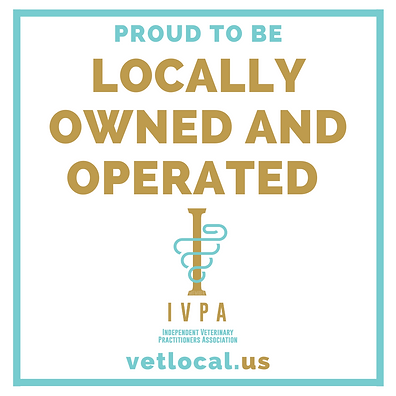|
Intestinal obstruction is one of the most critical and life-threatening emergencies rabbits can face. As prey animals, rabbits are adept at hiding symptoms of illness, which can make rapid recognition and treatment essential for their survival. At Priest Lake Veterinary Hospital in Nashville, Tennessee, Dr. Kopp, a board-certified specialist in Exotic Companion Mammal Practice, provides expert care for rabbits facing this urgent condition.
What Is Intestinal Obstruction?
An intestinal obstruction occurs when a blockage prevents the normal movement of food, liquids, and gas through the gastrointestinal tract. In rabbits, these blockages often form in the proximal duodenum or ileocecal junction. Common causes include:
- Hairballs (Trichobezoars): Frequently composed of compressed hair, which is common due to grooming habits.
- Ingested Foreign Material: Such as carpet fibers, bedding, or other indigestible items.
- Compacted Food: Improper diets lacking fiber can lead to obstructions.
Left untreated, intestinal obstructions can quickly lead to severe complications such as gastric rupture, hypovolemic shock, and death.
Recognizing the Signs of Intestinal Obstruction
Rabbits with intestinal obstructions often present with sudden, acute symptoms. Look for the following warning signs:
- Lethargy or Depression: A previously active rabbit may suddenly become listless.
- Lack of Appetite: The rabbit stops eating or drinking entirely.
- No Fecal Output: A hallmark symptom of gastrointestinal distress.
- Abdominal Pain: Indicated by a hunched posture, grinding teeth, or reluctance to move.
- Swollen Abdomen: The stomach may feel firm or distended during gentle palpation.
If your rabbit exhibits any of these symptoms, seek veterinary care immediately, as time is critical in treating intestinal obstructions. For after-hours emergencies, please contact VEG Franklin or Mufreesboro for immediate assistance.
Diagnosis: How Do We Identify an Obstruction?
At Priest Lake Veterinary Hospital, Dr. Kopp uses advanced diagnostic tools to confirm intestinal obstructions:
- Physical Examination: Extreme caution is used during palpation to avoid rupturing the stomach. A firm, enlarged stomach mass is often detected.
- Radiographs (X-Rays): These are crucial for identifying blockages. A classic indicator includes a large gas-filled stomach that contacts the ventral abdomen.
- Blood Tests: Bloodwork helps assess the rabbit’s hydration, glucose levels, and overall condition.
Treatment Options for Intestinal Obstruction
The treatment plan depends on the severity of the obstruction. Dr. Kopp employs evidence-based strategies to stabilize and treat rabbits:
- Stabilization: Rabbits presenting in shock often require:
- Fluid Therapy: Aggressive intravenous fluids to rehydrate and improve circulation.
- Pain Management: Analgesics like buprenorphine to alleviate severe discomfort.
- Stomach Decompression: For moving obstructions, a minimally invasive orogastric tube may be inserted under sedation or anesthesia to relieve gastric pressure. This procedure must be done carefully to prevent complications.
- Surgical Intervention: If the obstruction is non-moving or life-threatening, surgery may be required to remove the blockage. Dr. Kopp performs these procedures with precision, taking measures to minimize risks and ensure your rabbit’s recovery.
Prognosis and Aftercare
With prompt and appropriate care, many rabbits can recover fully from intestinal obstructions. Prognosis depends on factors such as the location of the blockage, duration of symptoms, and overall health of the rabbit. Rabbits under two years old tend to have higher survival rates following surgery.
Post-treatment care includes:
- Dietary Adjustments: Switching to a high-fiber diet with plenty of grass hay to promote healthy digestion.
- Hydration Monitoring: Ensuring your rabbit has constant access to fresh water.
- Regular Check-Ups: Preventive care and follow-ups to monitor for recurrence.
Preventing Intestinal Obstructions
Preventive care is the best way to protect your rabbit from intestinal obstructions:
- Provide a High-Fiber Diet: Grass hay should make up the majority of your rabbit’s diet. Limit sugary treats and low-fiber foods.
- Minimize Hair Ingestion: Regular grooming helps reduce the amount of loose hair your rabbit ingests.
- Remove Hazards: Keep potential foreign materials, such as carpet fibers or inappropriate bedding, out of your rabbit’s reach.
Expert Rabbit Care in Nashville, Tennessee
At Priest Lake Veterinary Hospital, Dr. Kopp is dedicated to the health and happiness of your rabbit. If you suspect your rabbit has an intestinal obstruction or need advice on preventive care, don’t wait—contact us today for compassionate, expert care in Nashville and Middle Tennessee. For after-hours emergencies, please contact VEG Franklin or Mufreesboro for immediate assistance.
|
|
.webp)





